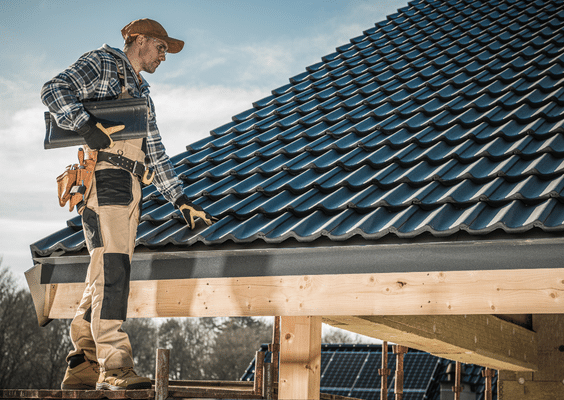Introduction
For veterans interested in a career in real estate, becoming a VA-certified residential appraiser is an excellent option that can be richly rewarding. Appraisers play a critical role in the home buying and selling process, determining the market value of a property. A VA-certified residential appraiser is specially trained and certified to appraise properties that will be financed through VA loans.
In this article, we will explore the steps required to become a VA-certified residential appraiser, the benefits of this career path for veterans, and the potential career opportunities available. The process of becoming a VA-certified residential appraiser can seem daunting at first, but with the right education, training, and experience, veterans can achieve success in this field and make a meaningful impact on the housing market.
Who is a VA-Certified Residential Appraiser?
To become a VA-certified residential appraiser is to undertake a profession that is both demanding and rewarding. A VA-certified residential appraiser is a professional who evaluates the worth of residential real estate properties for a variety of purposes, including purchase, sale, refinancing, and loan underwriting. These appraisals are conducted to provide an independent, impartial, and objective opinion of a property’s value to ensure that the parties involved in the transaction, particularly the veteran borrower and the VA lender, are not overcharged.
What does a VA-Certified Residential Appraiser do?
A VA-certified residential appraiser’s role is essential in ensuring that the VA loan program’s key objective of helping veterans become homeowners is fulfilled. By determining the value of the property, a VA-certified residential appraiser provides assurance to the veteran that they are paying a fair price for the property they wish to purchase, thereby reducing the likelihood of default and foreclosure. Moreover, the appraiser’s role is critical in safeguarding the VA loan program’s integrity by ensuring that only eligible veterans are granted VA loans and that the property being purchased meets the VA’s minimum property requirements.
Benefits of Being a VA-Certified Residential Appraiser
As a VA-certified residential appraiser, there are many benefits veterans stand to enjoy. Here are some of the benefits that come with the job:
- Job Security: The VA requires all residential property appraisals to be completed by a VA-certified appraiser, meaning that there will always be a need for qualified appraisers. This can provide job security for those in the field.
- High Earning Potential: The median annual salary for appraisers and assessors of real estate was $60,830 in May 2020, according to the U.S. Bureau of Labor Statistics. VA-certified residential appraisers often earn even more due to the specialized nature of their work.
- Flexibility: Many VA-certified residential appraisers work as independent contractors, allowing for a flexible schedule and the ability to work from home.
- Helping Veterans: As a VA-certified residential appraiser, you have the opportunity to help veterans achieve their dream of homeownership. By providing accurate appraisals, you can ensure that they are getting a fair deal and can afford the home they want.
- Professional Development: The VA requires all appraisers to meet continuing education requirements to maintain their certification, which provides opportunities for professional development and career advancement.
- Personal Satisfaction: For those who enjoy problem-solving and attention to detail, the job of a VA-certified residential appraiser can be highly satisfying. Each appraisal presents a unique challenge that requires careful analysis and attention to detail.
Steps to Becoming a VA-Certified Residential Appraiser
Becoming a VA-certified residential appraiser involves a series of steps that must be taken to meet the education, training, and experience requirements set by the Department of Veterans Affairs (VA). The following is a breakdown of the necessary steps:
Step 1: Complete Education Requirements
Aspiring VA-certified residential appraisers must complete a 150-hour education program that covers the basics of appraisal principles, procedures, and ethics. The program must be completed through a VA-approved provider and can be taken online or in person. The Appraiser Qualifications Board (AQB) of The Appraisal Foundation sets the minimum education requirements for appraisal licensure in the United States, including the VA-certified residential appraiser designation.
To ensure that the education program you choose is approved by the VA and meets the AQB’s standards, you can refer to the VA’s list of approved education providers for veterans or the AQB’s list of approved education providers for all appraisal licensure types.
Step 2: Gain Experience
After completing the education requirement, a veteran must gain experience in residential real estate appraisal. You need to accumulate at least 2,000 hours of experience, which can take between 12-24 months. During this time, you must work under the supervision of a certified appraiser.
Step 3: Pass the National Uniform Licensing and Certification Exam
Once you have met the education and experience requirements, you need to pass the National Uniform Licensing and Certification Exam, which is administered by the Appraisal Qualifications Board (AQB). The exam is computer-based and consists of 125 multiple-choice questions.
Step 4: Obtain State Certification
After passing the national exam, veterans must obtain state certification in the state where they plan to practice. The certification process involves meeting additional state-specific requirements, such as completing additional education or passing a state-specific exam.
Step 5: Apply for VA-Certification
After completing the required education and experience, aspiring veterans must apply for VA certification. This involves completing an application, and electronic fingerprinting through a state-approved provider such as the Florida Department of Law Enforcement (FDLE), as part of the licensing process. The application process also involves submitting required documentation such as education transcripts, and experience logs, and passing the National Uniform Licensing and Certification Exam. The VA will evaluate the submitted documents and determine if the applicant meets the VA’s minimum standards for certification.
Conclusion
As a veteran, becoming a VA-certified residential appraiser is a career path that can provide purpose to a veteran, and end up being deeply satisfying. While the process requires time, dedication, and effort, it provides the opportunity to work independently, set your own schedule, and earn a good income. The education and experience requirements ensure that appraisers have a thorough understanding of the principles and practices involved in valuing residential properties. Additionally, VA certification can lead to a wider range of job opportunities, as well as increased credibility and recognition in the industry.
By following the steps outlined in this article and obtaining the necessary qualifications and certifications, veterans can build a successful and rewarding career as residential appraisers. The VA offers support and resources to help veterans navigate the certification process, and there are many reputable education providers and organizations that offer training and assistance. Ultimately, becoming a VA-certified residential appraiser is a viable and worthwhile career option for veterans seeking a fulfilling and challenging profession in the real estate industry.




